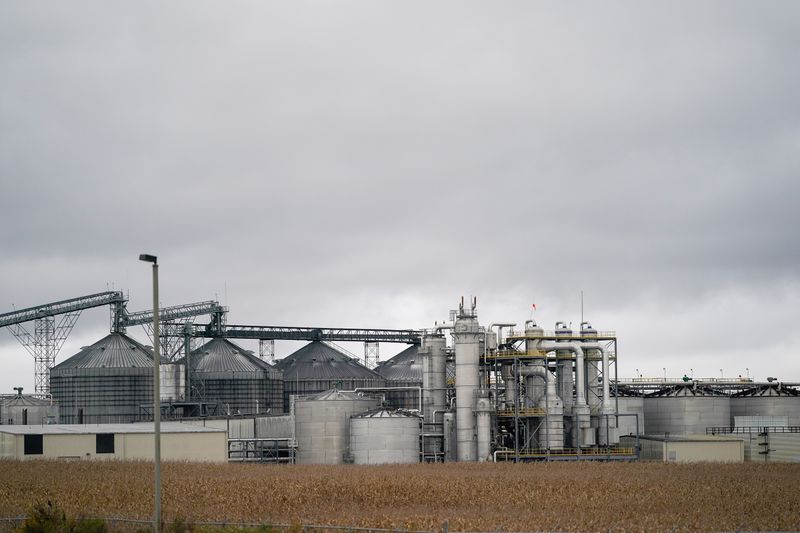By Stephanie Kelly
NEW YORK (Reuters) - The Trump administration finalized U.S. biofuel blending requirements for 2020 on Thursday, leaving a key part of the rule unchanged from an earlier proposal that the corn lobby had criticized as inadequate to help struggling farmers.
The move is destined to anger biofuel industry officials and corn-state senators who had pushed hard for changes until the 11th hour, potentially threatening President Donald Trump's support among farmers ahead of next year's election.
Under the U.S. Renewable Fuel Standard (RFS), the Environmental Protection Agency is charged with setting biofuel blending requirements for the refining industry to help farmers by boosting demand for corn- and soybean-based fuels, while reducing U.S. dependence on oil.
The finalized rule increases the volume for blending requirements to 20.09 billion gallons in 2020, up from 19.92 billion gallons in 2019. The mandate included 15 billion gallons of conventional biofuels like ethanol, unchanged from 2019.
The point of contention involves a plan the EPA introduced in the rule to compensate the biofuel industry for the agency's expanded use of exemptions from requirements given to oil refiners.
The Trump administration's EPA has roughly quadrupled the number of the so-called Small Refinery Exemptions, or SREs, to help refiners in financial distress, which corn farmers and biofuel producers say has undercut demand for ethanol.
First unveiled by the EPA in October, the plan raises the biofuel volumes that some refineries must blend in 2020 based on U.S. Energy Department recommendations for volumes that should be exempted. The rule finalizes the methodology based on the 2016-2018 annual average of DOE recommendations.
The biofuel industry wanted the adjustments to be based on actual volumes waived, since the EPA routinely waives higher volumes than the DOE recommends.
The EPA said the methodology would work, provided DOE recommendations are followed in the future. The EPA said it is committed to following the DOE recommendations.
"We plan on demonstrating our commitment to that as soon as the 2019 SREs, which we anticipate granting relatively early on once they're all received in 2020," a senior EPA official said on a call with reporters.
Biofuel advocates, including Iowa Senators Chuck Grassley and Joni Ernst, claim the finalized plan does not reflect an unofficial agreement they reached with the administration this fall.
"EPA had an opportunity to restore the broken trust of farmers and to follow through on the president's commitment, but it appears they've missed the mark... again," Ernst said after the rule was announced on Thursday. "It's no wonder trust has been lost."
The oil industry says the waivers are needed to preserve blue-collar refining jobs and disagrees with the claim that the waivers reduce demand.
Some in the refining industry also were unhappy with the rule. Executives from companies including Ergon, Sinclair Oil Corp and Calumet Specialty Products Partners sent a letter to Trump this week, saying the EPA's rule will do "irreparable harm" to small refineries.
"Curtailing small refinery hardship will not increase demand for biofuels. Demand for biofuels will only increase through meaningful actions," the group said.
Trump and top White House officials directly intervened in discussions about the biofuel requirements this fall in an attempt to appease farmers, whose support Trump is counting on in next year's presidential election.
"Apparently President Trump doesn't care about his promise to Iowa's farmers," said Iowa Corn Growers Association President Jim Greif. "ICGA will not stop fighting for market access for corn in all forms."

Renewable fuel credits were little changed following the news. D6 credits for 2019 traded at 12.50 cents each on Thursday.